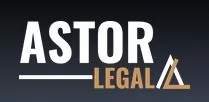After community backlash, NSW Police search quotas have been scrapped along with targets for the use of move on powers.
This follows significant increases in the quotas during the COVID-19 pandemic, despite crime detection falling.
Both legal bodies and civil libertarians criticised the use of numerical goals to monitor performance across police regions and commands as enabling the vulnerable groups to be targeted.
Criticism of Police Search Quotas
Criticism of the use of police search quotas came from a number of quarters, including the former Director of Public Prosecutions, Nicholas Cowdery.
Now an adjunct professor of law at Sydney University, Mr Cowdery labelled the strategy as a distortion of law enforcement. He welcomed the end of targets for searches and move-on directions.
"Police would be encouraged to put the worst construction on conduct that they observe to give them justification to conduct searches," he said. He also raised concerns that a miscarriage of appropriate discretion would be particularly detrimental for young and vulnerable people and Indigenous Australians.
Aboriginal Legal Service acting Chief Executive Nadine Miles said quotas, "only incentivises police to take a heavy-handed approach and intervene in situations where their involvement may not be necessary".
Greens MLC David Shoebridge said the targets for "invasive" personal police searches being increased by up to 21 per cent during a pandemic "shows how wrong these quotas are."
"There is hope that with a new commissioner there will be a turn away from the very idea of policing to quotas," Mr Shoebridge said.
NSW Police Quotas Rise Despite Lower Incidents
NSW Police previously called the quotas "community safety indicators" (CSI) and claimed they could have "serious consequences for innocent citizens".
A police spokesperson said the CSIs were a vital assessment tool within COMPASS, the digital system that records incidents and targets. The system provides a three-year average of actual incident statistics across priority categories. These figures are then used to compare performance and identify trends.
"Where there are disparities - whether increased or decreased in comparison to a CSI - it is expected a commander would provide rationale and comparison of the pandemic impact when addressing and reporting on crime results. There is no punitive action in relation to CSIs," the spokesperson said.
It was revealed that police increased their targets for carrying out personal searches and using move on powers during the pandemic. The quotas required officers to conduct over 240,000 personal searches, issue nearly 110,000 move-on directions and detect 305,000 crimes in 2020-21. This was despite overall crime falling from 2019 onwards.
Overall search quotas increased 1.8 per cent in the 2020-21 financial year, compared to 2019-20, but quotas for some parts of the state went up by far more.
For example, targets were set to conduct 21 per cent more personal searches in Nepean in 2020-21 compared to 2019-20. This was despite incidents of crime falling by 24 per cent.
Police search targets for Wollongong and Liverpool also increased by over 15 per cent. Targets for Mount Druitt, Eastern Beaches and Campsie went up by more than 10 per cent. The incidents for those commands fell by between 6 and 20 per cent.
In Liverpool, targets for move on directions increased by 35 per cent despite their use decreasing by 22 per cent since 2019.
In Leichhardt, the move on targets increased by 21 per cent while their use fell by 31 per cent. In Riverstone, in Sydney's north-west, the target increased 20 per cent while the incidents dropped by 40 per cent.
The overall target for crime detection fell by approximately 1.8 per cent between 2019-20 and 2020-21. Targets for most individual crime categories fell or stayed the same.
The target for drug supply charges increased by 11 per cent, from a total of 6364 detections across NSW in 2019-20 to 9959 in 2020-21. The overall incidents of drug detection fell by 1.5 per cent during that period.
A police spokesperson said that despite the impact of COVID-19 restrictions on drug markets in the latter half of 2019-20, a number of records were set, including 38.5 tonnes of illicit drugs seized nationally.
The spokesperson went on to say the use of police powers, including search powers, were required to be done in accordance with the Law Enforcement (Powers and Responsibilities) Act 2002.
Police Search Policy Changes
However, the targets were removed for the 2021-22 financial year after a change in police policy. This reflected a focus on "prevention-focused policing". No further comment was provided.
The police spokesperson said preventative policing strategies, along with community engagement, played a significant role in the reduction of crime.
The spokesperson said, "We make no apology for targeting those who participate in, or direct the activities of, criminal groups that impact on the safety of people in NSW."
During a parliamentary hearing in September 2021, retiring NSW Police commissioner Mick Fuller accepted that overall, "crime is extremely low or extremely stable".
Asked about the effects of the pandemic on crime trends, he said, "Property crime is certainly some of the lowest that we have seen in modern history. It sort-of has been fascinating to watch different factors, such as federal government injections of money into the economy and the movement of people."
NSW Police recently faced similar criticism over the legality of its strip-searching practices. This was the result of a public inquiry into several incidents of children being subjected to strip searches by police investigating drug possession at music festivals.
The content of this article is intended to provide a general guide to the subject matter. Specialist advice should be sought about your specific circumstances.

